CREATE Team Visits Konabari Jhoot Cluster in Bangaldesh
On 6th August 2023, CREATE Team spent almost half-day at Konabari textile waste cluster (Jhoot Cluster) to understand the informality in waste-handling, waste transactions and reuse. The visit to Konabari Jhoot Cluster helped understand the tacit dynamics associated with the Jhoot transactions and reuse, provided us with invaluable insights into the working condition of textile informal recycling sector in Bangladesh. This hands-on experience allowed us to gain a comprehensive understanding of the jhoot collection process, sorting methods, pricing dynamics, socio-economic impact of jhoot recycling and the workers wellbeing condition in country’s one of the largest textile-waste clusters.
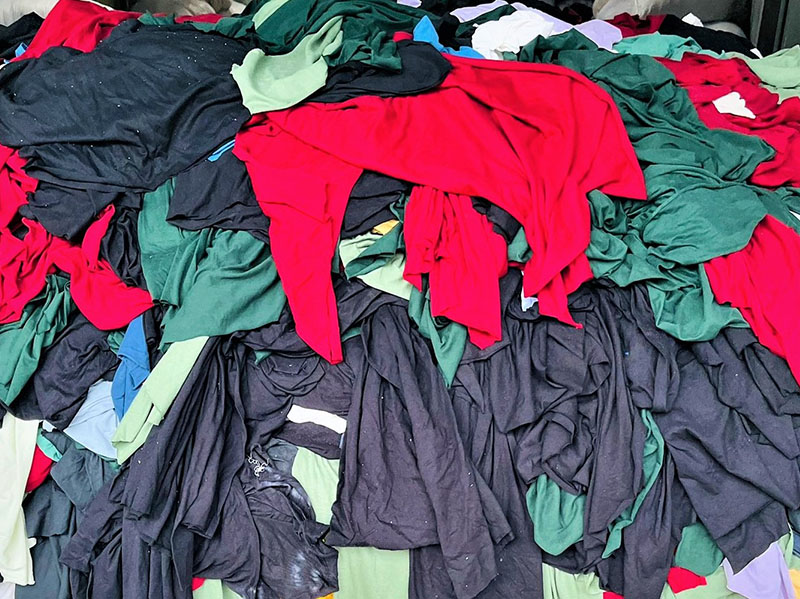
The visit was led by the CREATE project leader, Dr. Mohammad B. Rana, Associate Professor at Aalborg University Business School (AAUBS), Denmark, together with Emeritus Professor Olav Jull Sørensen at AAUBS and a senior Research Fellow at Access2Innovation, DK, Prof. Dr. Imranul Hoque (AUST and JnU), Prof. Dr. Melita Mehjabeen (IBA, DU), Professor Dr. Mahbub Alam (IUT, Dhaka), Mr. Abul Kalam Azad, Research Associate at CREATE, Sarah Mirza, Research assistant at CREATE, PhD Students at Aalborg University Mr. Syed Ahmed Tajuddin, Mr. Hasan Imam, and the future PhD student Mr. Yestabshir Mahmud & Asma Khatoon.
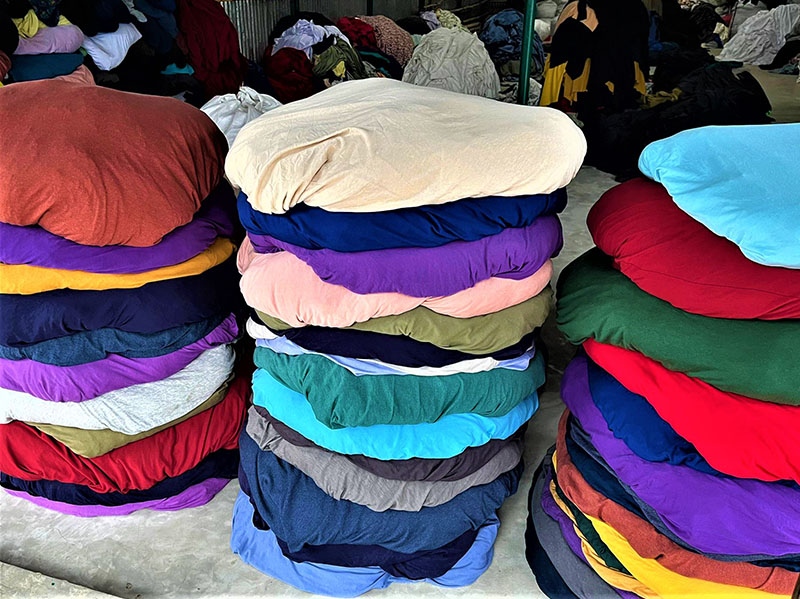
Notable findings include how different actors play roles in Jhoot transitions and processing; beginning from the factory gate to final recycled/reused product development, the buying and selling prices of jhoot, the wages of workers involved, and the destinations of the recycled materials. The team learned about the challenges and opportunities presented in the sector, such as the total number of local factories who makes their garments from jhoots, the value addition by jhoot, the production processes involved, and the distribution channels.
The research unveiled the importance of jhoot recycling and reuse within the textile industry’s value chain. It highlighted the role of small businesses and individual workers in managing textile waste following sustainability principles that it can contribute both to the economy, society, and environmental sustainability. The cluster’s contribution to the local economy through job creation and the reuse of discarded materials showcased its significance as a socio-economic hub.
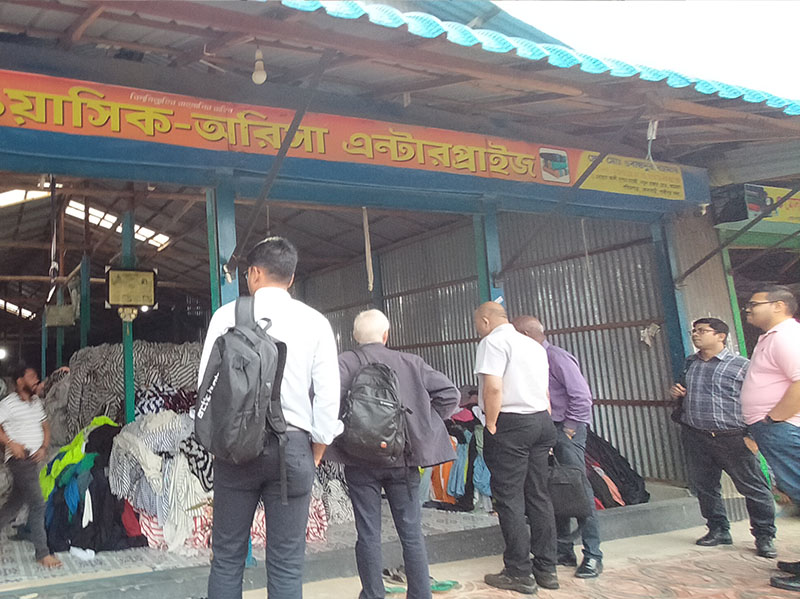
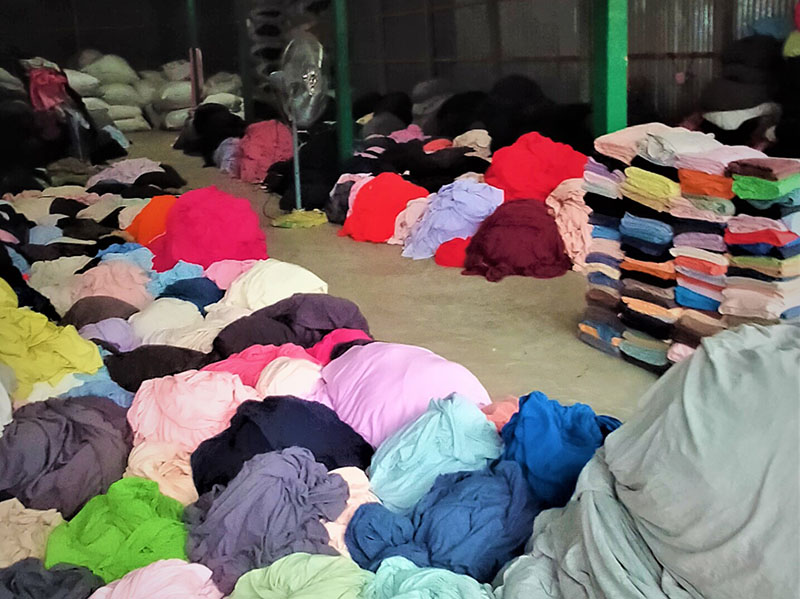
The information collected during this visit equips the CREATE Team with valuable data to assess the value addition, well-being of the workers, identify areas for improvement, and potentially implement strategies for enhancing the lives of those involved in jhoot recycling. Further visits and data collection on the clusters will help CREATE to formulate recommendations for improving work conditions, ensuring fair wages, and fostering more efficient and sustainable practices in the sector.
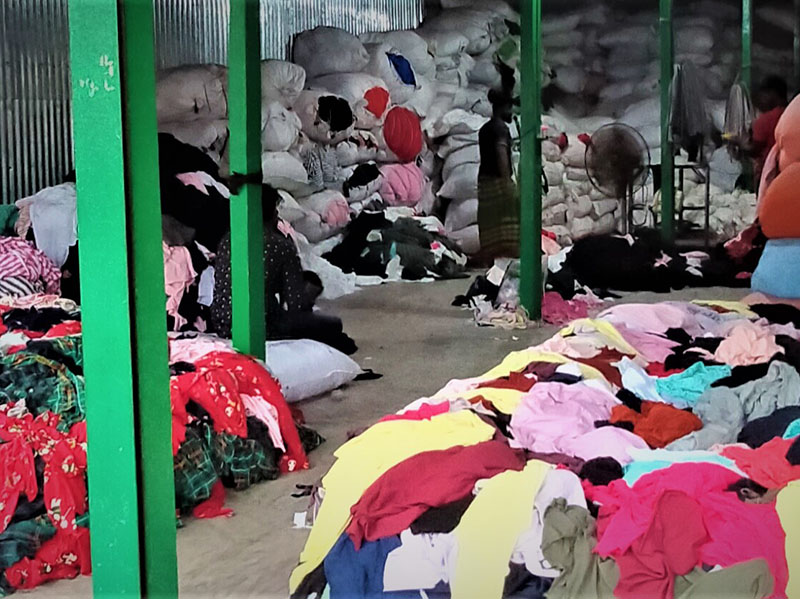
The visit to Konabari Jhoot Cluster allowed CREATE Team to gain a first-hand understanding of the complex dynamics within Bangladesh’s informal recycling sector. The insights gathered during this visit serve as a foundation for qualitative and quantitative data collection for informed decision-making, policy recommendations, and initiatives aimed at both the socio-economic development of the region and the sustainable management of textile waste.